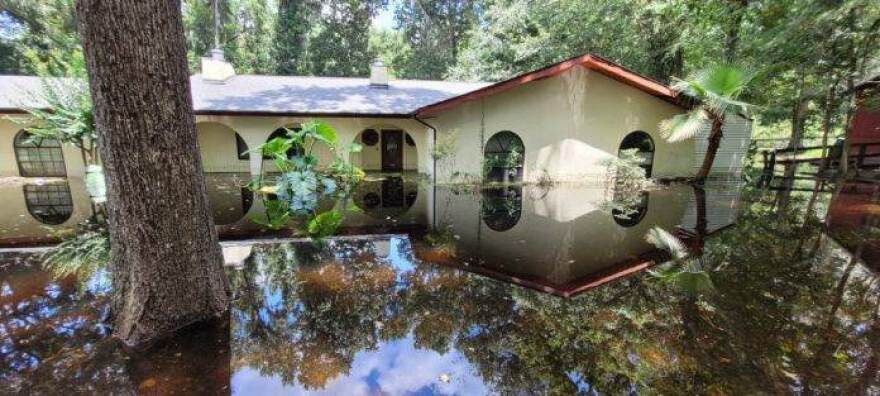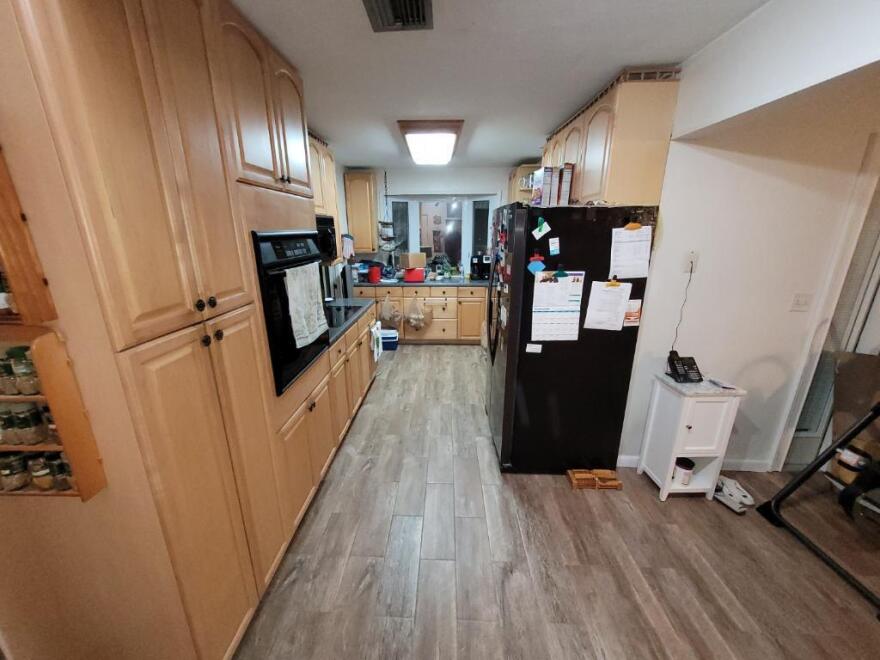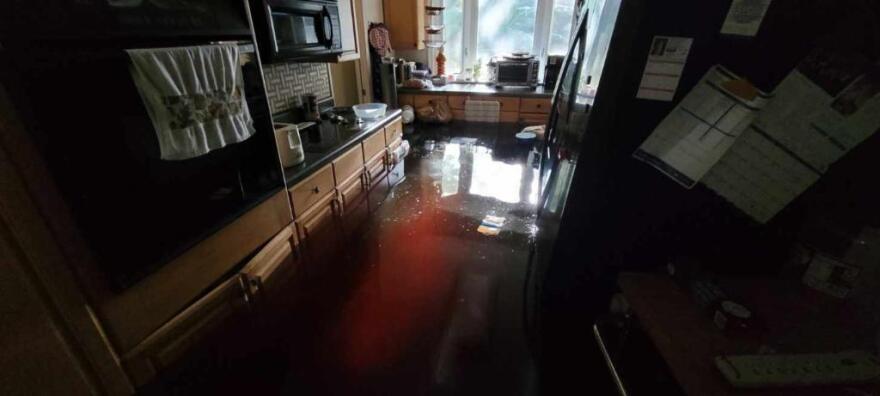On July 7, 2021, Mark Dake’s home was flooded with 36 inches of water during Hurricane Elsa. Dake lived in the Emerald Woods neighborhood in north Gainesville from 2011 until the flood left him homeless for two weeks. He has lived in a mobile home since then.
“I’m not putting another family through this if I can help it,” Dake said.
In the following months, Dake hired a biologist and two civil engineers to inspect his home. Their collective opinion was that his house will likely flood again if no changes are made to the property.
And Dake isn't alone. His neighbors are also experiencing flooding events, and not just during hurricanes.
Dake's neighbor Dawn Graziani said she put nearly $100,000 into a new drainage system for her property to prevent it from being flooded. Even with the new drainage system, Graziani’s yard is flooded with water during hurricanes.
Claudia Rasnick lives in the Brooke Pointe neighborhood in Alachua County. When she bought her home, she was told that a flood was expected on her property about every 100 years.
“Every year,” Rasnick said, “my yard floods during the rainy season, and it keeps getting closer to my house.”
In December, Dake hired an attorney to notify the City of Gainesville and Alachua County that he was seeking compensation for the destruction of his home. Dake said he hopes the city or county will take over the property, destroy the home and refrain from building a new home on the land.
Dake first reached out to his attorney, Donald Pinaud, over a year ago. They informally contacted the city of Gainesville to seek compensation for the damages.
“The city initially said that they were going to apply for a federal grant,” Pinaud said. “They were going to ask the federal government for money that they could use to buy the property from Mark.”
“Later, I was told the grant application was denied,” he said.
On Dec. 16, Pinaud sent a notice of an intention to sue to Mayor of Gainesville Lauren Poe, Chair of Alachua County Board of Commissioners Anna Prizzia, and the Florida Department of Financial Services.
Pinaud wrote in the notice that the flooding was caused due to the “City and/or County’s failure to properly account for water drainage and maintain open drains and due to the City and/or County having installed a flood water drainage system below the natural water flow ground level on an easement directly adjacent to the claimant’s property.”
Pinaud argued that the drainage system collected water from a high point and released it next to the Dake property. Pinaud described the location of Dake’s home as a “bathtub.”
“The City and/or County was negligent in diverting and forcing flood waters to a location where the Claimant’s property was required by the laws of physics to accept water from the adjacent community and thereby insuring a substantial flooding loss in the event of a heavy rain event,” Pinaud wrote.
Mark Sexton, the Communications Director for Alachua County, said that Alachua County does not allow officials to make public comments for cases with possible litigation, but he and the county are aware of Dake’s situation.
Sexton said that Alachua County responds to potential flooding events by strengthening pumping efforts in areas that are prone to floods. He said Alachua County receives many calls from people who live in areas like Emerald Woods and Brooke Pointe and that the county does what it can to help those individuals.
The city, county or state has six months to respond to the notice and reach an agreement with Dake. If nothing is resolved in that period, Pinaud and Dake plan to sue, Pinaud said. So far, Pinaud has been in contact with Diana Johnson, the Senior Assistant County Attorney for Alachua County.
Pinaud has dealt with other cases of flooding outside this county in the state of Florida, but he said they can usually be resolved on the private level.
“I have never had a case where the city is dumping water onto the property,” Pinaud said. “This is a much clearer case of county or city liability.”
“My suggestion is the city should knock down the house, buy the property and build a park there,” Pinaud said. “Then the property could accept all the water during a rain event.”
Until a decision is made regarding their properties, both Dake and Rasnick will continue to face the financial repercussions of living in a flood zone.
“Unless you live it, you just don’t understand it,” Rasnick said.



